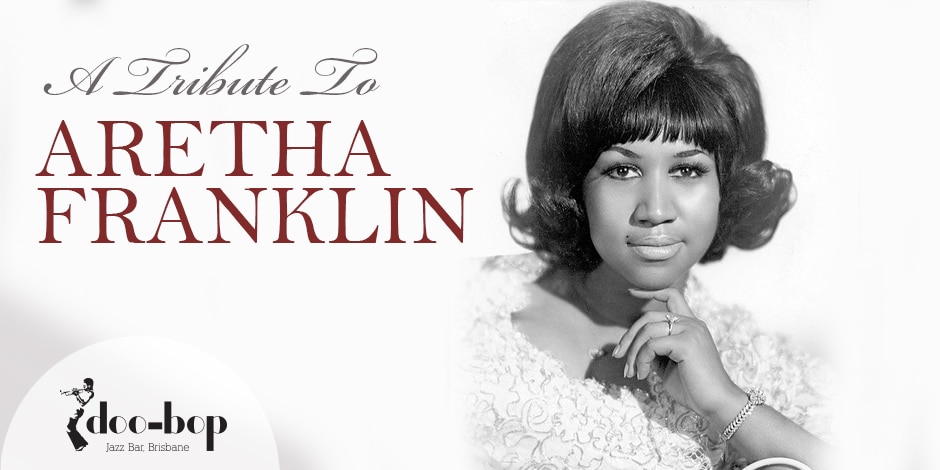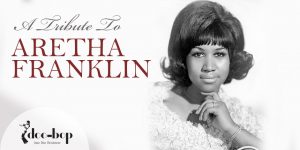Aretha Franklin, The Queen of Soul, was undoubtedly one of the defining voices of the 20th Century. She moved gospel from the church into the secular world of pop and brought with it the struggles of the civil rights movement, and those sounds have spanned generations. Rolling Stone magazine listed Aretha as the greatest voice of all time and her peers and audience stood in standing ovation.
At the young age of six, Aretha was playing complex gospel piano chords and sang like no other. The daughter of a preacher, Aretha spent her childhood and adolescence belting out gospel songs with her sisters, until at 18, her father took her to Colombia Records where she was promptly signed and began performing at the biggest jazz clubs in New York. Unfortunately, Colombia failed to see the huge potential of Aretha and her career had a slow start. Then, in 1967, Aretha moved from Colombia to Atlanta records and began working with producer Jerry Wexler and everything changed.
Playing piano and co-producing her own work Aretha’s sound finally came into her own and her biggest hits were created. Chain of Fools, Dr Feel-Good and a string of others topped the charts. Respect became an anthem for the civil rights movement and a rallying cry for all disenfranchised groups. She was the sound of the 60s in America. Her cultural iconography was permanently established, the recognition of her genius an accepted fact. She would wind up winning no less than 18 Grammys.
In 1971, Aretha recorded Amazing Grace, dubbed the greatest gospel album of all time. The 70s weren’t easy for soul artists as disco became the predominant genre, but Aretha continued to stay at the top of her game and signed to Arista in 1980. What followed was a series of brilliant albums and singles. Aretha teamed with star producers Luther Vandross (Jump to It) and Narada Michael Walden (Freeway of Love and Who’s Zooming Who). She sang hits duet with George Michael (I Knew You Were Waiting [For Me]), and Elton John (Through the Storm). In 1987, she self-produced her second landmark gospel record, One Lord, One Faith, One Baptism and that very same year became the first woman to be inducted into the Rock and Roll Hall of Fame. Seven years later, she became the youngest artist to receive the Kennedy Centres Honour.
Perhaps the most thrilling moment of all came in 1998 at the 40th Grammy Awards at Radio City Music Hall. Before a world-wide audience of 1.5 billion, Aretha stepped in for an ailing Luciano Pavarotti at the last minute and interpreted Puccini’s Nessun Dorma to operatic perfection.
Not only was Aretha an incredible vocalist and the biggest artist of the 60s, but also a passionate activist who believed the world could be a better place. Her political commitments became evident through her music in the 70s in songs such as To Be Young Gifted and Black, which became one of her highest selling songs. Close friends with Dr Martin Luther King and Angela Davis, and a supporter of Black Panther, many of Aretha’s song addressed issues of racial oppression, sexism, and equality.
Whether you were alive at the height of Aretha Franklin or not, her name, her voice are unmistakable and truly timeless. For six decades, Aretha Franklin was a beacon of creative originality, a force of vocality, and a beacon for female strength. She was the Queen of Soul, the voice of an era, an American icon, and true music royalty.

